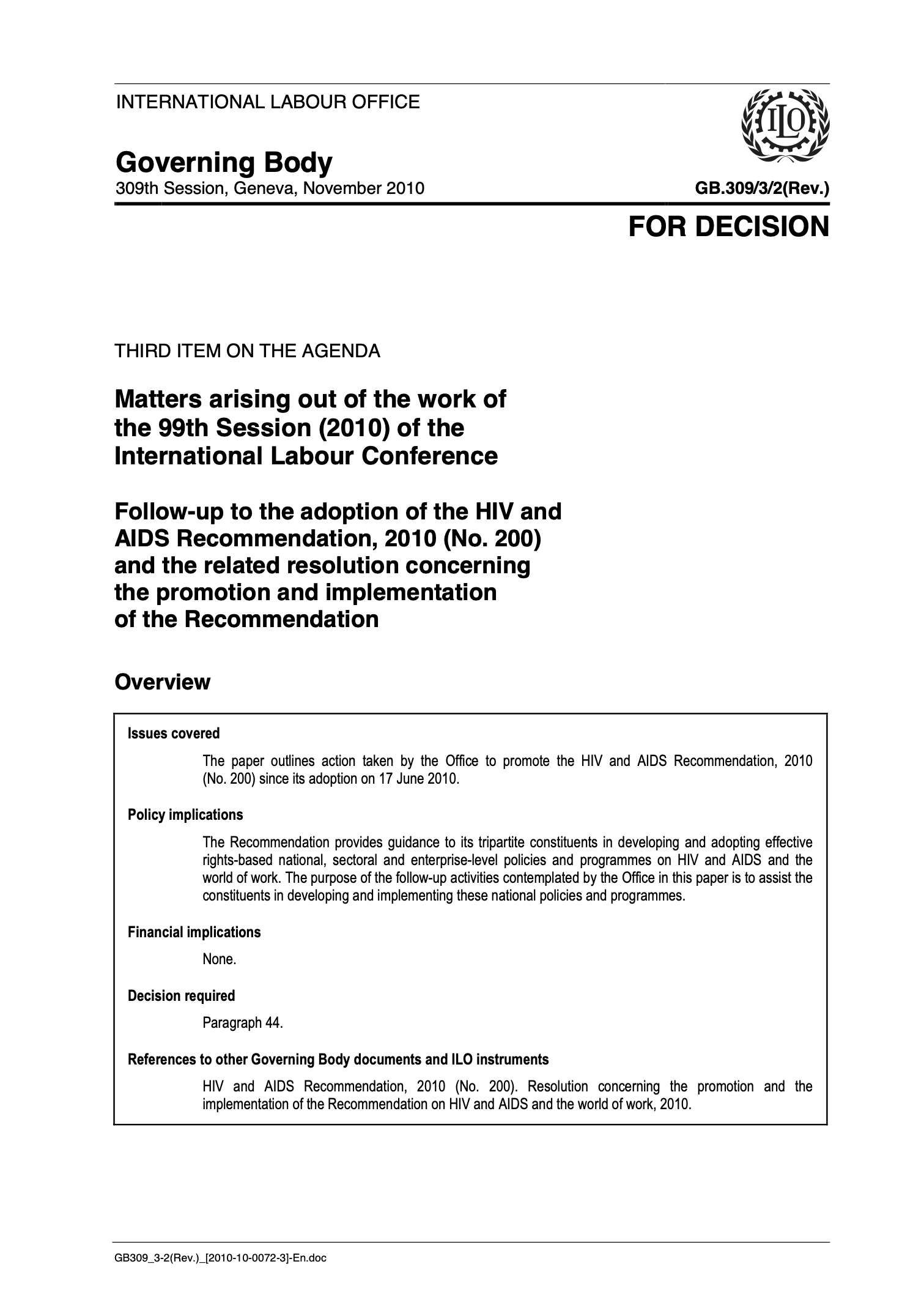2010 ILO Recommendation concerning HIV and AIDS and the world of work
Analysis of precedential value
This recommendation by the International Labour Organization (ILO) was passed by the International Labour Conference with 443 votes in favour, 4 against, with 11 abstentions. The ILO is a UN agency that develops standards and policies for labour that protect human rights. The International Labour Conference sets the broad policies of the ILO, adopts its budgets and elects the members of its Governing Body. All 187 UN Member States are represented at the Conference by a delegation consisting of two government delegates, an employer delegate, and a worker delegate.}
Used as precedent
societal enablers
“Highlighting the role of the workplace in facilitating access to prevention, treatment, care and support services, the Recommendation calls for the development, adoption and implementation of national tripartite workplace policies and programmes on HIV and AIDS and on occupational safety and health, which are to be integrated into national development plans and strategies. These policies and programmes are to be developed by member States in consultation with the most representative organizations of employers and workers, with the involvement of other actors, including organizations representing persons living with HIV, and taking account of the views of relevant sectors, particularly the health sector.” (paragraph 5)
harm reduction
“The Recommendation sets out comprehensive provisions on safety and health measures to be taken to prevent workers’ exposure to HIV, with particular emphasis on workers whose occupations may place them at greater risk of exposure to HIV transmission.” (paragraph 6)
positve legal determinants
“Retention in employment is often the primary–if not the only–means of ensuring that workers will be able to have access to health-related services, including treatment, and nutritional support as a component of appropriate treatment. In this regard, the Recommendation emphasizes that “there should be no discrimination against or stigmatization of workers ... on the grounds of real or perceived HIV status or the fact that they belong to regions of the world or segments of the population perceived to be at greater risk of or more vulnerable to HIV infection”. The Office will seek to assist members to draft legislation and policy to prevent HIV-related discrimination in employment.” (paragraph 17)
“The Office will pursue its ongoing efforts to mainstream HIV and AIDS concerns into all aspects of the world of work, particularly targeting workers in those sectors most exposed to the risk of HIV transmission. The impact of the current economic crisis hits vulnerable groups the hardest, thereby compounding vulnerability to HIV infection. Targeted HIV prevention policies and programmes at the workplace are called for in the Global Jobs Pact. The Office will seek to act through the development of policy advice, additional tools and materials, conducting necessary participatory research to strengthen the knowledge base. It will also seek to develop evidence-informed strategies that will increase the impact and cost-effectiveness of technical cooperation projects.” (paragraph 19)
